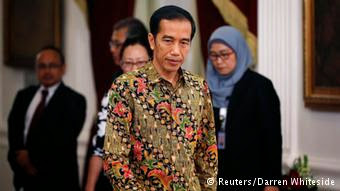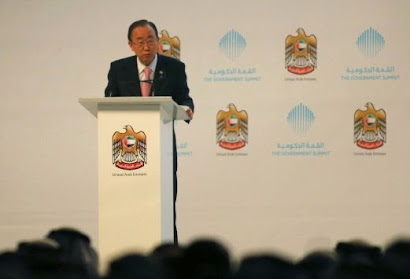Jakarta Globe, Tunggul Wirajuda, Jan 18, 2015
The images of the 2004 Boxing Day tsunami cutting a swathe of destruction through the Acehnese landscape still sends shivers through one’s spine, even ten years later. The human loss from the disaster is just as devastating: The earthquake and tsunami left over 170,000 people dead in Aceh.
The images of the 2004 Boxing Day tsunami cutting a swathe of destruction through the Acehnese landscape still sends shivers through one’s spine, even ten years later. The human loss from the disaster is just as devastating: The earthquake and tsunami left over 170,000 people dead in Aceh.
While the
human and material losses from the tragedy is staggering, it also made Aceh’s
recovery, with the help of the international community, all the more dramatic.
This is poignantly evident in the images of reconstructed roads, bridges and
other infrastructure, as well as houses, which literally and figuratively went
a long way in rebuilding their lives and getting a new start.
The images
of the disaster that moved the world to action remain as vivid today as they
were 10 years ago in a “Build Back Better,” an exhibition produced by the US
Agency for International Development.
Currently
on display at @america, the US Embassy’s cultural center in South Jakarta’s
Pacific Place mall, photos, slideshows, and a short film highlight the US’s
role in helping the people of Aceh rebuild in the wake of the disaster.
“[‘Build
Back Better’] is derived from a phrase from then-Indonesian President Susilo
Bambang Yudhoyono and former US Presidents George H.W. Bush and Bill Clinton to describe Aceh’s
rebuilding process,” said Swiny Andina, a USAID development outreach and communications
specialist for USAID.
A preface
to the exhibition by US Ambassador Robert Blake speaks to its aims: “We hope
that this exhibit will allow us to remember the dead, honor survivors,
acknowledge heroes, and reflect on the power of the human spirit.”
“While the
tsunami is the story of tragedy and loss, it also demonstrates what the
community of nations can accomplish when it works together toward a common
goal,” US deputy chief of mission Kristen Bauer said.
The
exhibition also features a short film, “Stories of Recovery: 10 Years After the
Tsunami.”
“[The film]
features interviews with Acehnese tsunami survivors and those who responded to
the disaster. Their stories and memories take the audience through the
tsunami’s various phases and its aftermath, and give a glimpse of USAID and the
rest of the international community’s efforts in reconstructing and rebuilding
efforts for the people of Aceh,” Swiny said. “The film also shows life in Aceh
today ten years after the tsunami, highlighting the Acehnese people’s
resilience and hopes for the future.”
Visitors to
the exhibition can hear first-hand accounts of the disaster from survivors and
those who helped them rebuild, such as Fauzi Polini of the Red Cross:
“I waded in
stagnant water to evacuate some of the corpses. Most people thought one has to
cover my mouth to do so, but I didn’t do that,” he says. “I managed to identify
the dead with their ID cards. I also washed their wallets and other valuables
before giving it to charity, as to do so will reflect well on them in heaven.”
Other
accounts speak to the tsunami’s effect on people from all walks of life.
“My
professor at Cornell University noted that floods might only affect the poor,
but a tsunami will affect the poor, the powerful, as well as civilians and
military personnel alike,” said Saiful Mahdi, an Aceh native who directs the
International Center for Aceh and Indian Ocean Studies.
Saiful said
that during the disaster, he too faced the painful uncertainty over his loved
ones’ fate while struggling to simultaneously deal with the magnitude of the
disaster. “In a way, the tsunami is the most ‘democratic’ of all natural
disasters in the world,” he added with a touch of bitter irony in his voice.
The survivors’
words offer moving testimony to their resilience.
“If we let
our sorrows break our spirit, we may not be able to continue. The Acehnese are
survivors; we got this attitude from our ancestors,” said fisherman and
community elder Gunawan Husny. “Disasters are tests from God. We must accept
them and move on.”
The US
government provided over $400 million in emergency aid and reconstruction
efforts in Aceh following the 2004 Indian Ocean earthquake and tsunami through
USAID and other agencies, such as the Departments of Defense and Agriculture.
The funds went towards the people of Aceh’s efforts to rebuild roads, public
works and other infrastructure under the leadership of the Indonesian
government, NGOs and partners. USAID also assisted Aceh’s people empower
themselves by restarting their livelihoods in agriculture and fishing, and by
improving access to health care and hygiene.







No comments:
Post a Comment